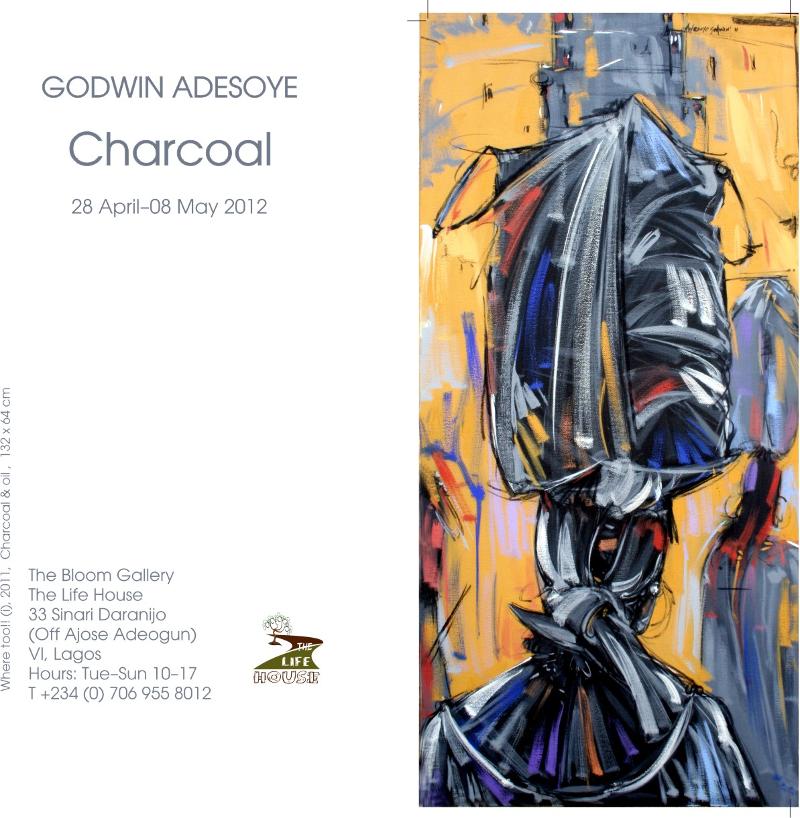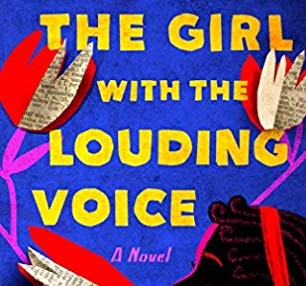
The quest for Olo’s sobriety begins one Friday night while his wife sits in a creaking armchair in their living room, staring intermittently at the ticking wall clock, waiting impatiently for him to return home to his dog-nose cold dinner.
Amope or Alice, as she likes to be called, is dressed in house clothes, a worn negligee and three yards of an Ankara fabric wrapped around her waist. Her loose clothes obscure her protruding belly. She looks over her shoulder at the dining table laden with food flasks, cutlery and a plastic bowl half-filled with water. She shakes her head and shrugs in time to the gate’s creak. Moments later, she hears a key turn in the door lock and her husband staggers in, reeking of beer.
“What are you doing up at this time of the night,” he asks, bolting the door.
“I should be asking you that question,” she says, still sitting but not sitting still; her legs are vibrating.
Olo mumbles, looks at her, at the wall clock, at the fluorescent light that illuminate the living room, then squints. He begins to say something and then stops.
“Your food, abi?”
“No, I am not hungry.”
“How can you be hungry,” she springs up. “Tell me, how can you be hungry when your stomach is full of all the peppersoups in town? I leave work very early to go to the market to buy vegetables, fish, oil, yam. In spite of my state, I pound yam soft as an ear lobe and you are here saying you are not hungry. You must be hungry. You must summon your hunger from wherever you hid it; this food is not going into any waste bin.”
She removes her wrapper and doubles it over, swings it around her waist and ties it firmly, battle ready; her eyes train on her husband and the white curtains adorning the doorway.
Olo knows he has lost this fight even before it begins. He walks a few paces back and falls into a chair with a sigh. “Oya, go and bring it.”
She bats her eyelids at him for about three seconds then proceeds to the dining table. She mumbles something about unfortunate husbands whose heads have been swiped by the intimate side of other women’s wrappers and heads into the kitchen.
Moments later, she emerges from the kitchen bearing a tray of steaming hot food. As she walks towards her husband, she hears his snores. He has sunk into an armchair, arms splayed, feet shod; the stench of alcohol rends the air.
“Ologunlade,” she says, setting the tray down with a sigh. She rocks his shoulders carefully to nudge him from the alcohol-induced slumber, to no avail.
She shakes her head, her mind churning and churning at the unfortunate downturns of matrimony. This is not exactly what she had in mind when Olo approached her that day at the out-patient clinic sporting a genial smile and an oversize white coat, asking her for her name and age and marital status.
She sighs and disappears behind the white curtains.
***********
Alice’s scheme for her husband’s sobriety hatches in her dreams, for she wakes up the next morning with a start. In less than five minutes, without considering weekend house chores or even the possibility of the mandatory environmental sanitation that is held on the last Saturday of every month, she waltzes out of her room dressed in a blouse, wrapper and head-tie of the same batik fabric.
Still splayed on the chair, lifeless save for his whistling snores, is Olo, her husband of two years. His last night’s dinner still lies on the stool, untouched, probably rancid, but this is the least of her concerns. She hisses as she adjusts her wrapper and steps into the brand new day.
Alice walks a short distance to the junction and flags down a languid taxi. The poor taxi’s chassis cringes as she lowers her weight into the passenger’s seat. She attempts and fails to shut the car door three times. It takes the timely intervention of the frustrated driver, who over-stretches his hand across her gravid belly, to shut the door properly. Door firmly shut, the old Datsun, whose road performance may be attributed to a resilient mechanic’s industry, coughs ashen bellows of smoke as it crawls towards her destination.
It takes Alice three hours of vehicular travel and another long winding walk to arrive at her destination, Pa Ologunlade’s compound at Owena. She is greeted by that rustic smell of village life. A cat using a wooden bench as a runway on the balcony appraises her. She unbolts the small door at the entrance and walks into the living room where she finds her father-in-law’s trophy wife admiring herself in a mirror the size of her palm.
Ayike stops and frowns. She leers at Alice like she would Olo’s mother. Olo’s mother was one of the kept women from Pa Ologunlade’s railway days; heydays when he flung his wild oats between the legs of nubile girls whose villages were along his train’s route. How ironic it is that Pa Ologunlade’s legitimate children have not turned out well; his first son attempted and failed severally to sell his father’s only house to an Agro-allied NGO. His first daughter, a retired tailor and twice a widow, recently moved back to her father’s compound when her late husband’s family flung out the lightest of her personal belongings after a Saturday family meeting. Worse, she’s also barren. This rather confounding turn of events irk Pa Ologunlade’s wives and they regard Olo’s mother with such potent and long-suffering envy that it has invariably been passed down to her daughter-in-law, wife of the illegitimate star son of Pa Ologunlade, the retired railway worker.
With both hands sitting on the upper edge of her wrapper, Alice greets her father-in-law’s latest wife, a mere girl, certainly her younger sister’s mate. Without anticipating any form of response, she proceeds to ask after her father-in-law. Ayike, busy in the mirror, points in the direction of the backyard.
Smoke whorls from Pa Ologunlade’s tobacco pipe, obscuring his lean frame in the reclining wooden chair. The octogenarian indulges in a post-prandial smoke as his daughter-in-law kneels before him. His response nearly goes down the wrong pipe, making him cough and sit up and pat her back while still coughing arduously from a cancerous growth that will eventually rid him of his life.
“Sorry sir, sorry sir,” Alice says with clear-eyed concern. The old man puffs again from his tobacco pipe.
“Amope, my daughter, how are you and your husband? We see you today. I hope there is nothing wrong. Or did your husband send you with the usual,” he smiles the suggestive smile of a corrupt corporal.
“Not at all, Baba, your son is well, everything is fine. For now.”
“For now?”
“Yes Baba, for now. I have come to report your son to you.”
“Has he stopped giving you food money?”
“No.”
“Did he stop shaking you vigorously in the embrace of night?”
“No.”
“Ah. Was he rude to our in-laws?”
“No Baba, he wasn’t.”
“I see. He dares not. He knows the kind of father who sired him.”
“So what has he done?”
“Baba, he keeps late nights. He indulges in too much drink. He returns home drunk, stinking of other women.”
Pa Ologunlade bursts into a spasm of laughter that makes him sit up again from his reclining position. Just when Alice thinks he is done, he riles into it again, laughing the knowing laugh of the wise.
“Permit me to thank you for that needful laugh, Amope. You see, I don’t seek to make a mockery of your report or trivialize its importance. But I find it really funny. Let me ask you a question. How many wives do I have?”
“Three, sir,” Alice says, showing three fingers.
“And how many concubines?”
“I say this respectfully, sir but I can’t say.”
“Exactly. There are some things you shouldn’t say as a wife. These women whose smell you perceive on your husband, do they come to harass you at your home?”
“No.”
“Did they waylay you on your way from the market?”
She shook her head.
“Perhaps they pounced on you at the market and ripped open your blouse.”
“No.”
“So you see. These women are lesser than you and they know their place as such. Why don’t you also be the Elephant that does not see the…”
“But…”
“No buts Amope, have I lowered myself to the level of sharing talk time with you?”
“I am sorry, Baba, forgive me.”
“Did you perchance hear about your husband’s grandfather, my father?”
“No I didn’t.”
“He was a warrior, a hunter and fiercely handsome man. Tall and sexy, women loved to kiss the contours of his rippling muscles. He lived well. Married many women, sired many more children and died at a ripe age. On the evening he was to answer the call of the gods, he walked outside to welcome the late evening palm wine tapper. He drank to his fill and died while his wives pounded his yam. A drink was his last meal. Amope, my daughter…”
“Sir.”
“Amope.”
“Sir.”
“Go home to your husband.”
Dami Ajayi is the author of two books of poetry, Clinical Blues (2014) and A Woman’s Body Is a Country (2017), both of critical and commercial acclaim.









